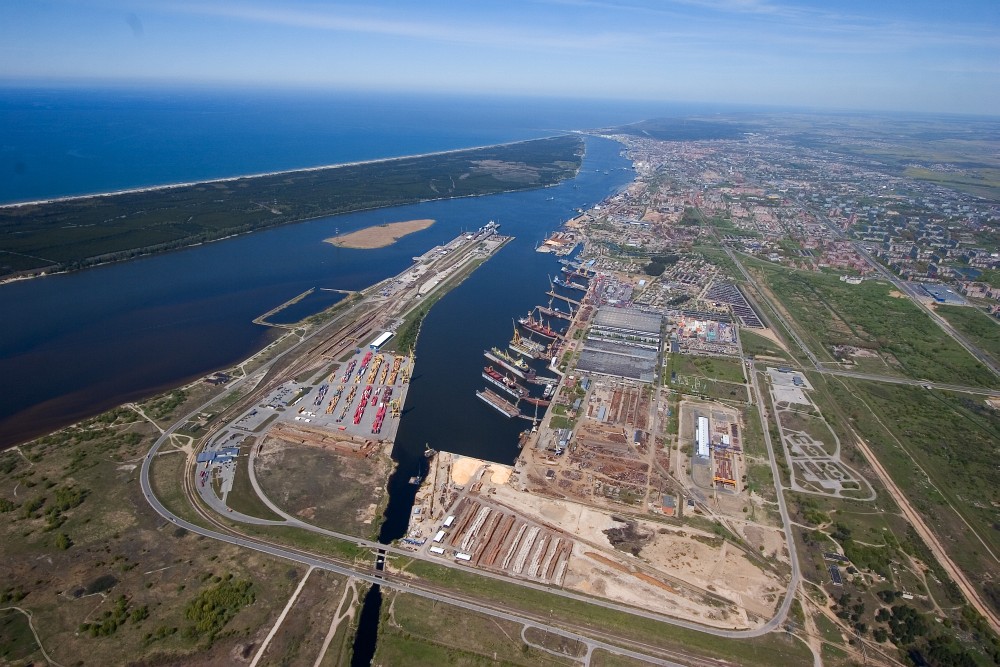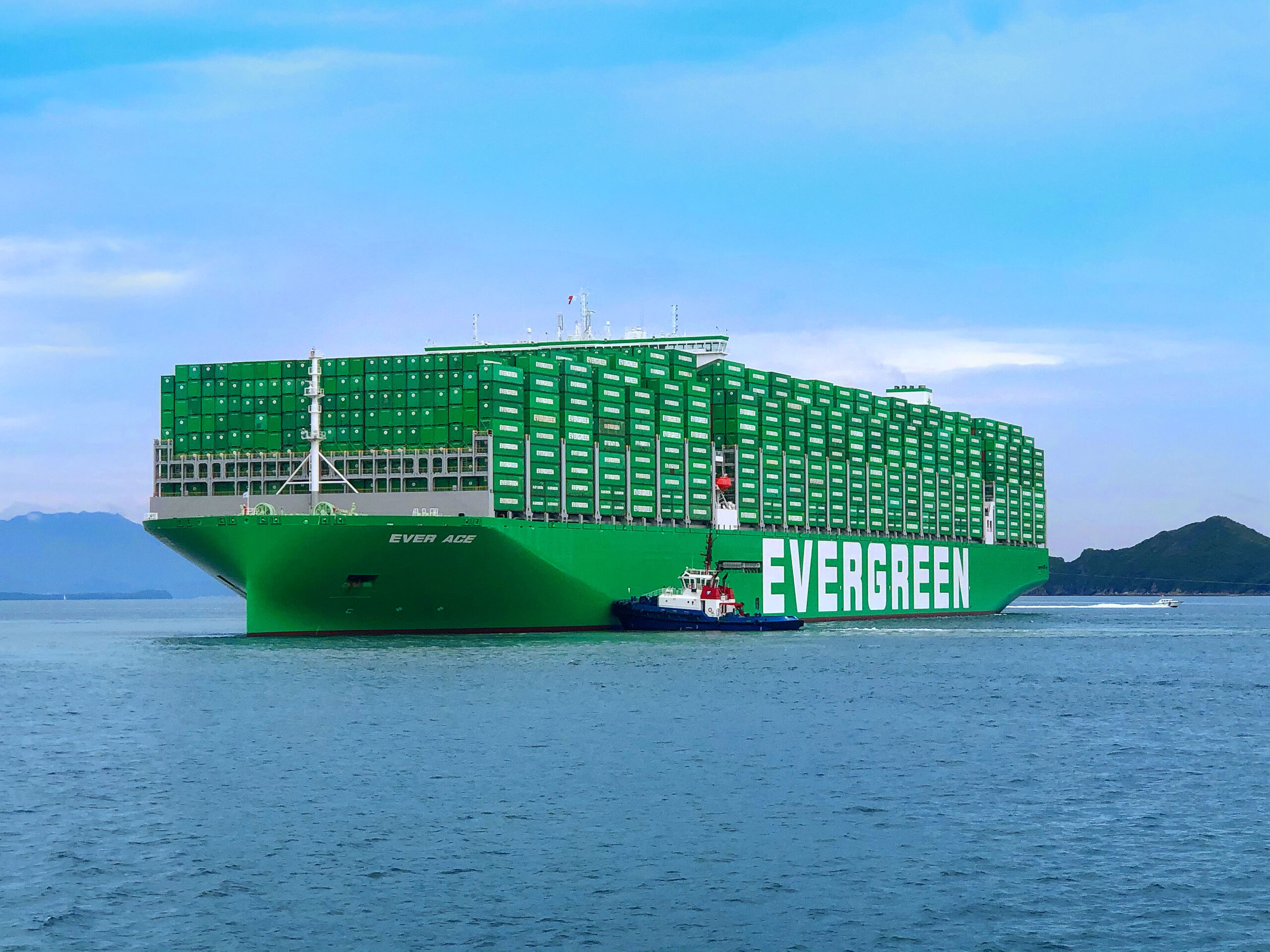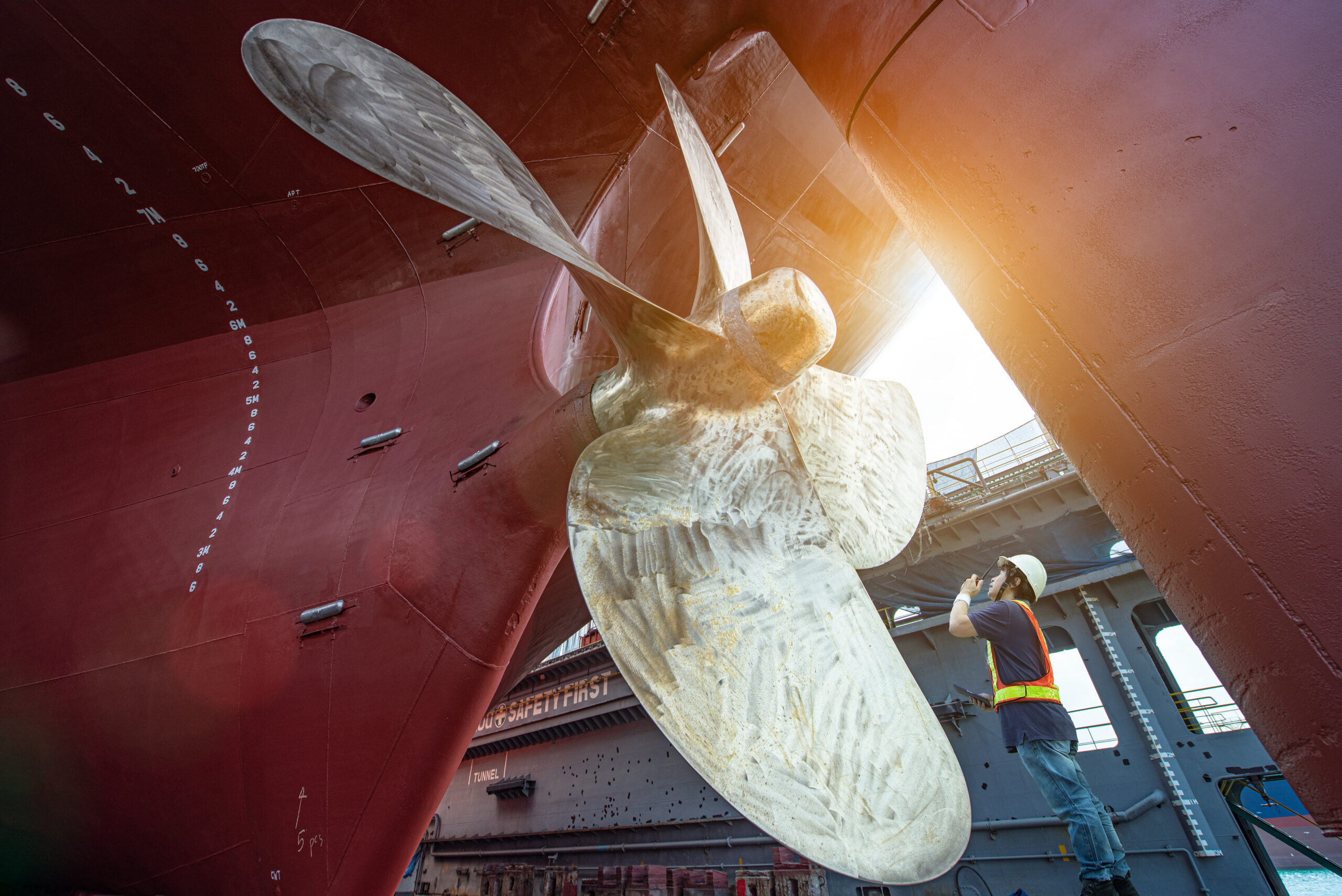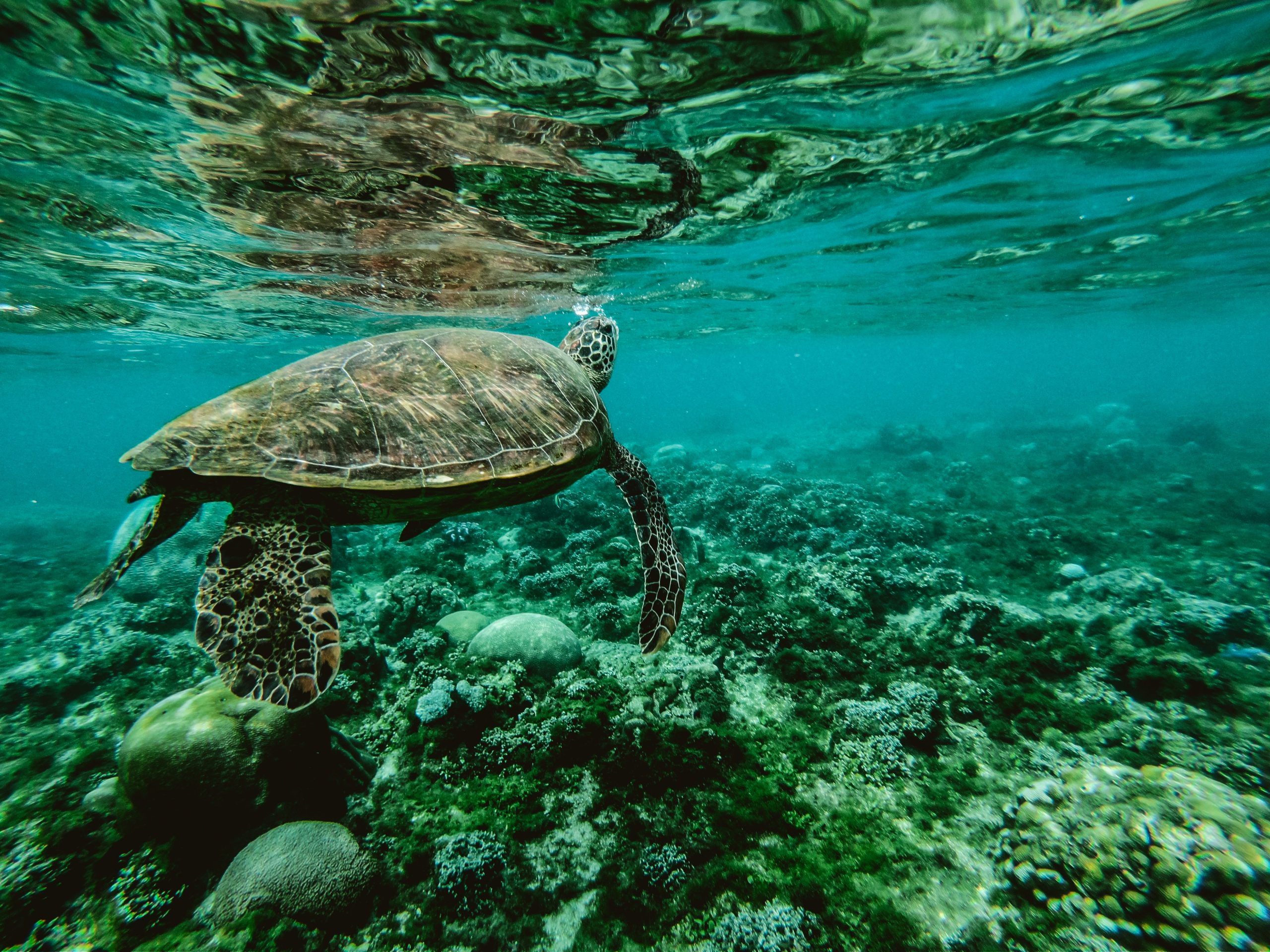A lot of things are happening in the port and logistics industry in Lithuania at the moment; politically as well as economically. As a shipping agency company, we need to always be adaptive to changes. In this article I describe a few influences that are affecting the future of our business and the industry in general.
1. Lithuania’s convenient geographical location between markets
Lithuania is centrally located between three sizeable markets: Western Europe and the Nordic countries, the Eastern markets of Russia and Central Asia. The port of Klaipeda plays a vital role in Lithuania’s foreign trade. It is our country’s biggest port, and thanks to its favourable location on the Baltic Sea, it functions as a very important transport hub for Central Asia, Belarus and the Western part of Russia. Last year more than 450,000 containers were handled in Klaipeda, which is a new record for the port.
Acting as the agent for Evergreen Line we offer global transport solutions, and from the seaport in Klaipeda we help export and import customers within the entire Baltic Sea region. With access to a worldwide network of offices and other agents, we can offer services to the majority of ports situated in the Far East, Mediterranean, North Europe and the United States.
2. The increased demand of logistics and transports to and from Lithuania
There are three main industries that dominate the export market in Lithuania; the forest industry, the peat moss industry and the furniture industry, with the food processing industry being not far behind. There is a substantial volume of transit cargo; fertilizers from Belarus, which are containerized in the port of Klaipeda and then shipped to many different destinations worldwide. In recent years the volume of exported fertilizers in containers reached more than one million tons annually. When it comes to import, Lithuania has a wide commodity base, mostly for consumption.
Over the last years, exports from Lithuania have more than doubled. We are seeing a rapidly increasing demand of transports from customers in distant regions, such as Asia and the United States. Both Lithuania’s imports and exports are expected to increase in volume in the coming years. For us, acting as a shipping agency company, it is important to be able to serve this increasing demand.
3. The introduction of the euro in Lithuania and support from EU funding programs
Earlier this year Lithuania adopted to the euro currency. The introduction of the euro is expected to lower costs and increase planning certainty for developing the infrastructure in Lithuania. Current developments in Lithuania include, for example, opening up new areas in the port of Klaipeda where cooperation between ports can be intensified in the future. Another investment is a new LNG floating terminal in the port, which will establish a measure of independence in terms of our country’s gas supply.
Billions of euros in EU funding will also speed up the expansion of the infrastructure. The government gives a lot of attention to developing Lithuania’s roads and the rail system. By doing that, Lithuania can continue to be attractive to Russian, Belarus and Central Asia customers within the logistics and transport industry. We also want the western Europeans and Scandinavians to use Lithuania as a gateway for their transports.
When it comes to the rail transport, we are connected into one single railway system together with Belarus, Russia and Central Asia. It is easy to access Lithuania from these countries, and the infrastructure is therefore important also to Belarus, Russia and Central Asia.
4. The geopolitical situation with problems in Ukraine and Russia
What is worrying us the most right now, acting as a shipping agency company, is the geopolitical situation and the problems in Ukraine and Russia. All ports in the Baltic Sea region are currently operating under conditions reflecting the impact of the Ukraine crisis and a weak Russian economy. Ukraine deal with political decisions and economical issues, and Russia wants to give priority to their own ports by introducing regulations that are meant to reduce the handled cargo flow in Lithuania.
With Russia being one of our most important trading partners, we are in an environment that doesn’t look very promising at the moment. The European Union and Russia need to come to an agreement, and lift all the barriers that are hindering the trade in the ports. But, despite the situation, Lithuania seems to have suffered little impact, since the port and logistics sector in our country managed to increase its added value last year.
The future of Greencarrier and Lithuania’s port and logistics industry
Looking at a ten years perspective, I am quite optimistic about Greencarrier and the future. The port and logistics industry is developing fast, and so is our business.
The country is receiving a lot of European funds to build infrastructure, and the government invests a lot in advertising to continue to stay competitive on the market. With support from partners in other European countries, both at the economic and political level, I believe the future of the port and logistics industry in Lithuania is bright.
Also our local economy is developing fast thanks to the European Union. The introduction of the euro in Lithuania, and having the same monetary system as other European countries, will help attract foreign investment in the future. With foreign investment, comes more job opportunities, and more jobs means that people will have more money to spend. This goes for companies to, which in turn generates additional demand for the retail and manufacturing industry, and consequently the port and logistics industry.
So we are definitely in a good place when it comes to the future. As the demand for transport will increase in the coming years, Greencarrier will continue to develop its business. Hopefully we will continue to meet our customer’s growing demand of transports and become even more competitive on the market.
Also, one mustn’t forget that Lithuania has only been independent for 25 years, and over the past ten years developments have happened very fast. Maybe for the next couple of years or so, there will be some doubts about the market due to the sanctions and problems in Ukraine. But once the problems are solved, the future will only look brighter to us, and not least our customers.
We always try to be attentive to what our customers need, and we always try to fulfil any customer demand or request. It really is a matter of solving problems, and making the lives of our customers easier. Our strong ability to solve problems is by far our greatest asset. Therefore, we will continue to believe that no challenge is too large or too small, and that everything is possible.
Contact us for more information about our global transport and logistics solutions
If you would like to know more about our global transport solutions, Evergreen Line or if you are looking for reliable ocean transportation, please contact us. With the know-how and experience collected over the years, our competent and loyal staff will make sure your transport will attend the best service all the way. You can also send me an email directly with any of your questions.





